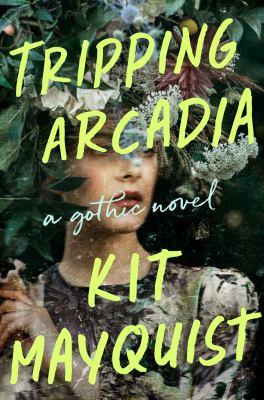
Tripping Arcadia
Med school dropout Lena is desperate for a job, any job, to help her parents, who are approaching bankruptcy after her father was injured and laid off nearly simultaneously. So, when she is offered a position, against all odds, working for one of Boston's most elite families, the illustrious and secretive Verdeaus, she knows she must accept it-no matter how bizarre the interview or how vague the job description. By day, she is assistant to the family doctor and his charge, Jonathan, the sickly, poetic, drunken heir to the family empire, who is as difficult as his illness is mysterious. By night, Lena discovers the more sinister side of the family, as she works overtime at their lavish parties, helping to hide their self-destructive tendencies... and trying not to fall for Jonathan's alluring sister, Audrey. But when she stumbles upon the knowledge that the Verdeau patriarch is the one responsible for the ruin of her own family, Lena vows to get revenge-a poison-filled quest that leads her further into this hedonistic world than she ever bargained for, forcing her to decide how much-and who-she's willing to sacrifice for payback. The perfect next read for fans of Mexican Gothic, Tripping Arcadia is a page-turning and shocking tale with an unforgettable protagonist that explores family legacy and inheritance, the sacrifices we must make to get by in today's world, and the intoxicating, dangerous power of wealth
Available Copies by Location
| Location | |
|---|---|
| Victoria | Available |
Browse Related Items
- ISBN: 9780593185209
- ISBN: 059318520X
- Physical Description 368 pages ; 23 cm
- Publisher New York : Dutton, an imprint of Penguin Random House, [2022]
- Copyright ©2022.
Additional Information



